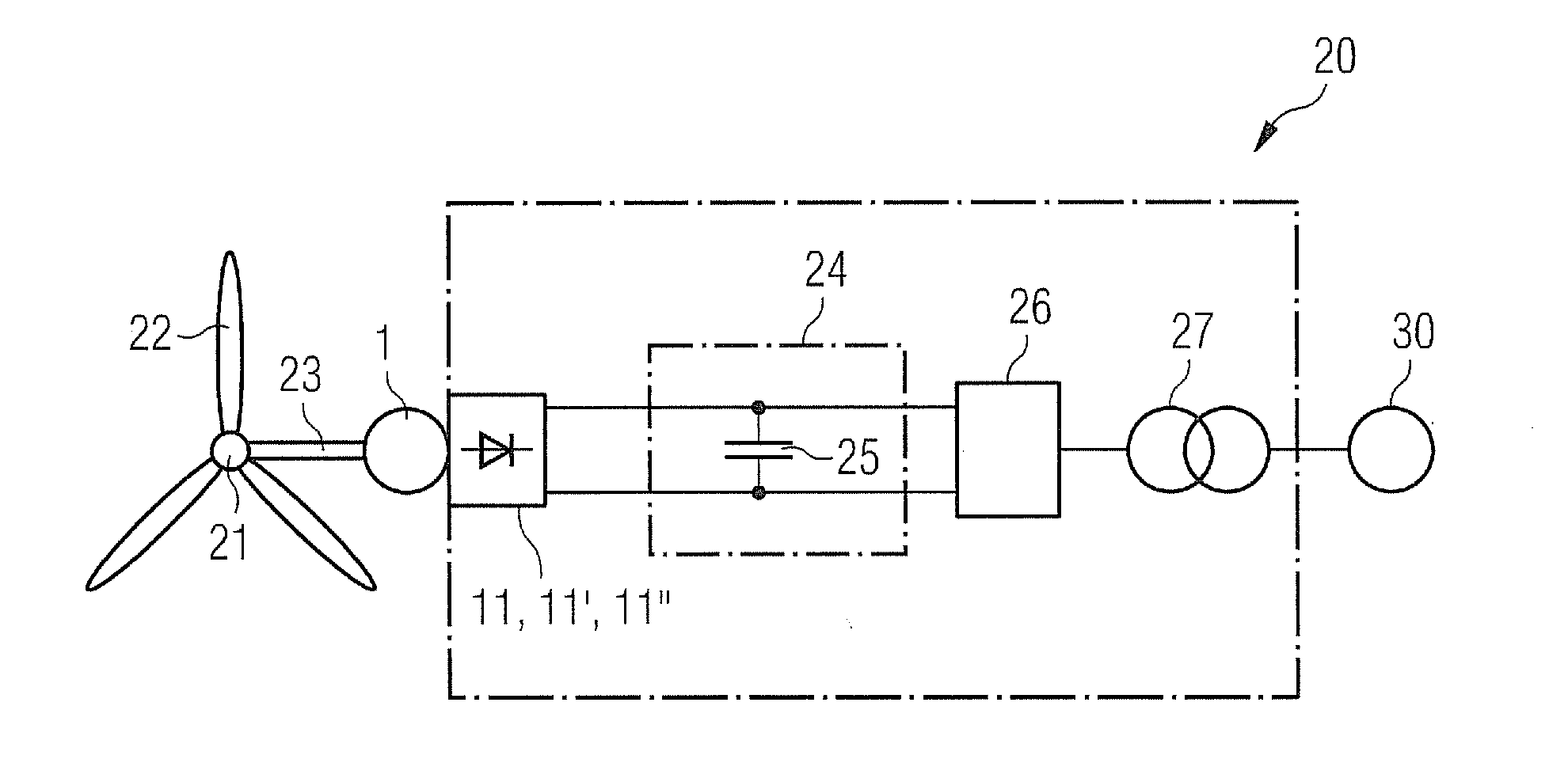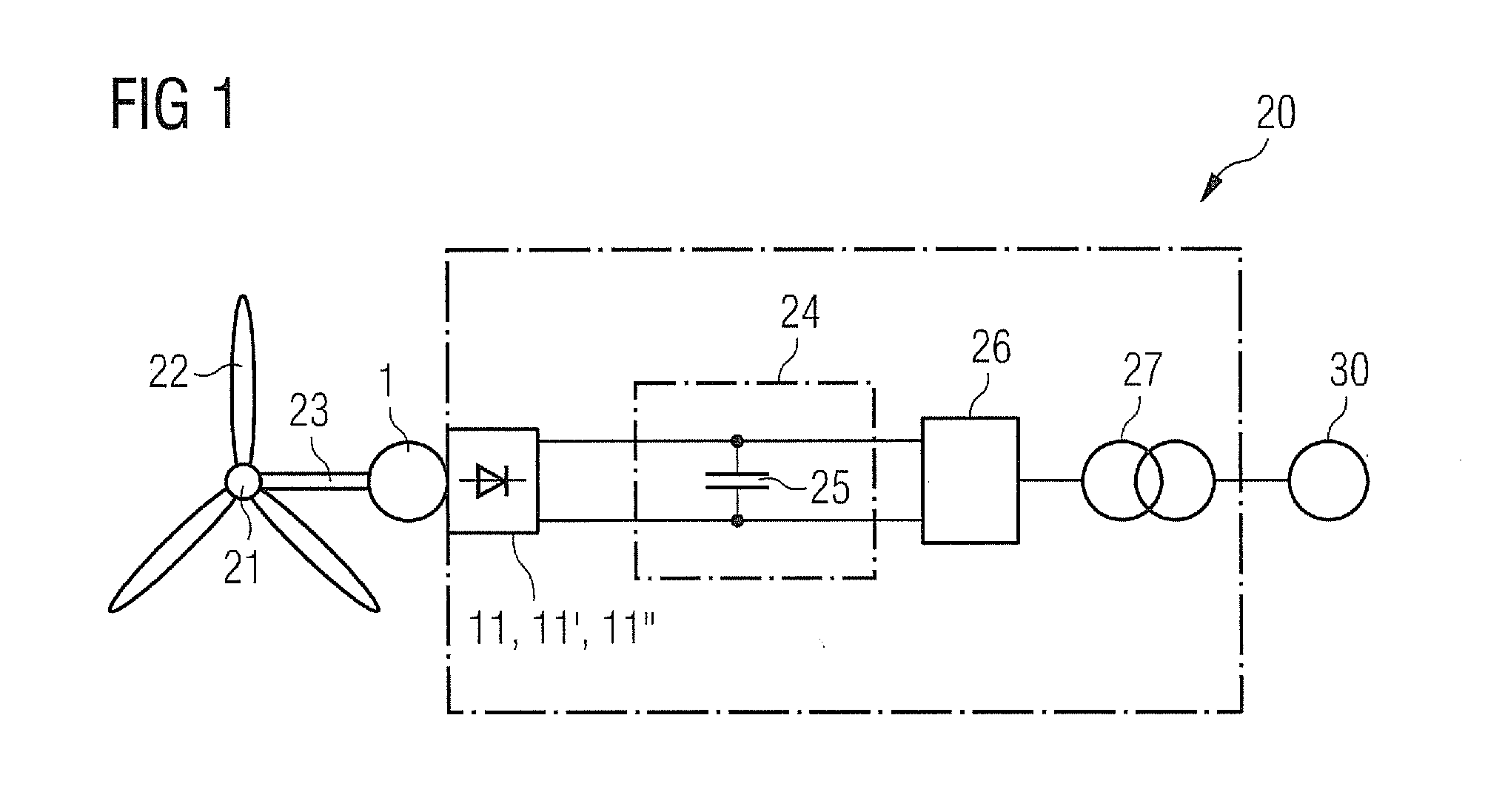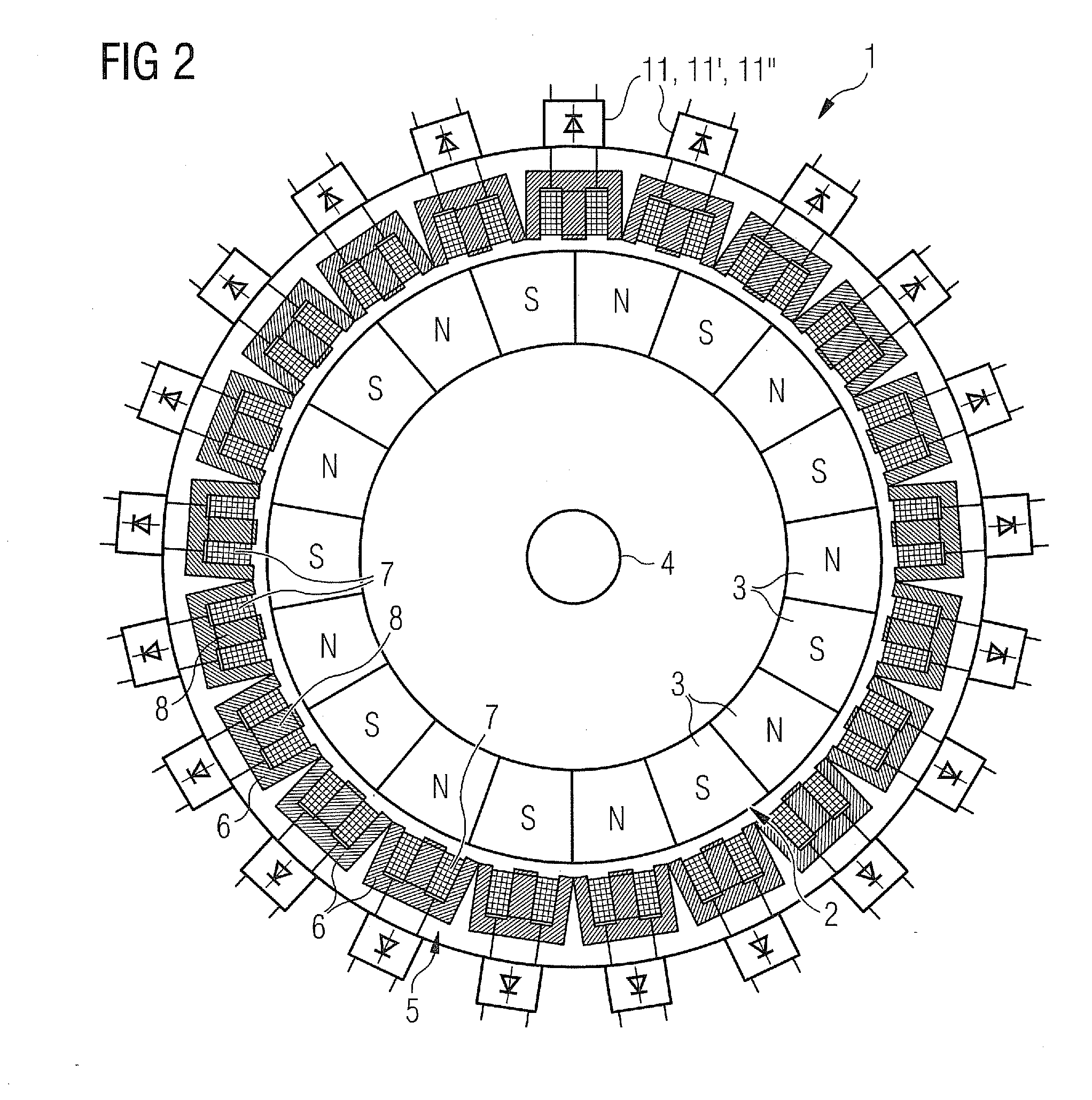Generator, wind turbine, method of assembling a generator and use of a generator in a wind turbine
a technology of wind turbine and generator, which is applied in the direction of electric generator control, machines/engines, mechanical equipment, etc., can solve the problems of limiting the energy conversion efficiency of the turbine, requiring a responsive torque control system, and the electrical generation system is of necessity more complex than that of a constant-speed wind turbine, so as to achieve the effect of reducing size and simplifying configuration
- Summary
- Abstract
- Description
- Claims
- Application Information
AI Technical Summary
Benefits of technology
Problems solved by technology
Method used
Image
Examples
Embodiment Construction
[0040]In the drawings, like reference numbers refer to like objects throughout. Objects in the diagrams are not necessarily drawn to scale.
[0041]FIG. 1 schematically shows the principle of construction of the energy producing system of a wind turbine 20. Such a wind turbine 20 usually comprises a tower (not shown in the figure) that may be erected on firm ground, on a seabed, or on any other suitable support. At the top of the tower a Nacelle (not shown in the figure) is mounted which carries a hub 21 with rotor blades 22. As schematically indicated in FIG. 1, a generator 1, which may be a direct-drive generator 1, is arranged in the wind turbine Nacelle and connected to the hub via a shaft 23 or drive train. Generators others than a direct drive generator, for example a generator coupled to the hub via a gearbox, may be conceivable, as it will be readily apparent to a person skilled in the art.
[0042]By rotation of the hub a rotor in a permanent magnet (PM) generator 1 is caused to ...
PUM
 Login to View More
Login to View More Abstract
Description
Claims
Application Information
 Login to View More
Login to View More - R&D
- Intellectual Property
- Life Sciences
- Materials
- Tech Scout
- Unparalleled Data Quality
- Higher Quality Content
- 60% Fewer Hallucinations
Browse by: Latest US Patents, China's latest patents, Technical Efficacy Thesaurus, Application Domain, Technology Topic, Popular Technical Reports.
© 2025 PatSnap. All rights reserved.Legal|Privacy policy|Modern Slavery Act Transparency Statement|Sitemap|About US| Contact US: help@patsnap.com



